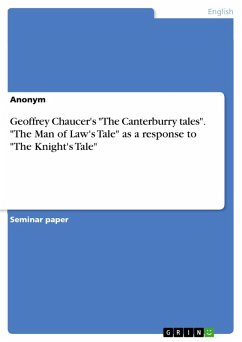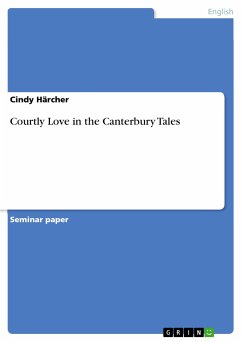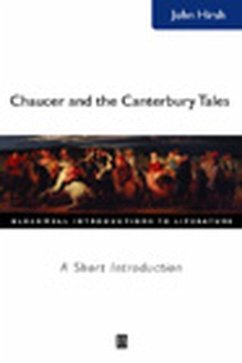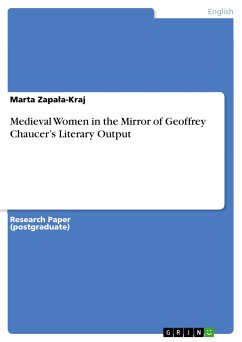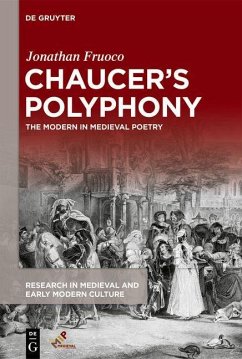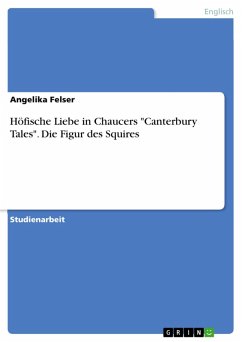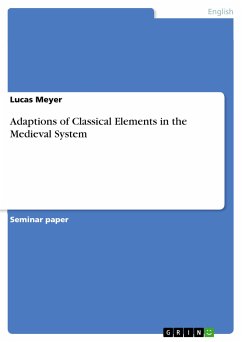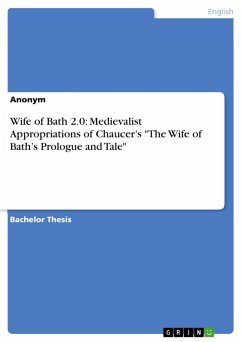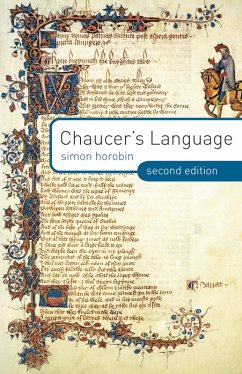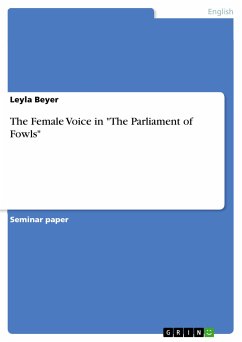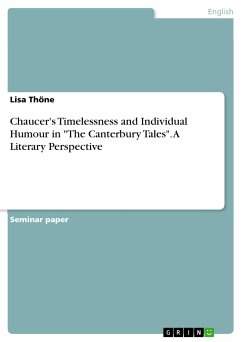
Chaucer's Timelessness and Individual Humour in "The Canterbury Tales". A Literary Perspective (eBook, PDF)
Sofort per Download lieferbar
Statt: 16,95 €**
13,99 €
inkl. MwSt. und vom Verlag festgesetzt.
**Preis der gedruckten Ausgabe (Broschiertes Buch)
Alle Infos zum eBook verschenkenWeitere Ausgaben:

PAYBACK Punkte
0 °P sammeln!
Seminar paper from the year 2021 in the subject English Language and Literature Studies - Literature, grade: 2,3, University of Paderborn (Institut für Anglistik und Amerikanistik), course: British Poetry from Beowulf to Instagram, language: English, abstract: This paper analyzes Chaucer's humour in "The Canterbury Tales". The analysis focuses on six tales, exploring different forms of humour and their societal implications, showcasing Chaucer's unique style and critique. The paper will start by exploring humour at Chaucer's time as well as Chaucer and his humour in general. After this, a the...
Seminar paper from the year 2021 in the subject English Language and Literature Studies - Literature, grade: 2,3, University of Paderborn (Institut für Anglistik und Amerikanistik), course: British Poetry from Beowulf to Instagram, language: English, abstract: This paper analyzes Chaucer's humour in "The Canterbury Tales". The analysis focuses on six tales, exploring different forms of humour and their societal implications, showcasing Chaucer's unique style and critique. The paper will start by exploring humour at Chaucer's time as well as Chaucer and his humour in general. After this, a theory by the professor of English Luis Alberto Lázaro Lafuente about Chaucer's timelessness and especially modernity will be taken into account. In the last part of the Background and Theory Chapter, the most relevant concepts, so forms of humour that are most prominent in Chaucer's work, and the concept of fable, will be defined. The analysis part will examine six tales that stick out concerning to their scope and variety of humour. First, the miller's use of dark humour will be focused to then go on to examine how the reeve revenges the miller for that. Then, some prototypical Chaucerian elements of humour in The Canterbury Tales will be investigated to get an understanding of Chaucer's style and individuality. After this, Chaucer's critique on humour in The Canterbury Tales will be taken into account. Finally, this paper will arrive at a conclusion, which considers the research question and thesis again, as well as options for further research.
Dieser Download kann aus rechtlichen Gründen nur mit Rechnungsadresse in A, B, BG, CY, CZ, D, DK, EW, E, FIN, F, GR, HR, H, IRL, I, LT, L, LR, M, NL, PL, P, R, S, SLO, SK ausgeliefert werden.




